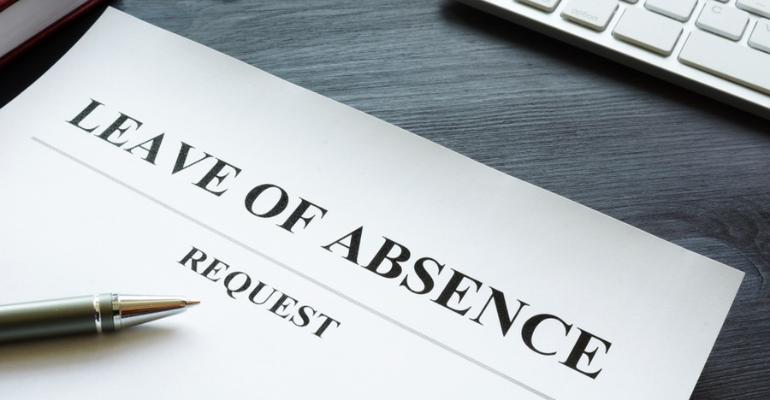
Top 10 FAQs About Pregnancy Discrimination
Do you feel as though you may not have received a job promotion because you were pregnant? Or were pressured into taking early leave? Or even fired? The Pregnancy Discrimination Act (PDA) of 1978 prohibits discrimination on the basis of pregnancy, childbirth, or related medical conditions. Here are answers to 10 frequently asked questions that will help you better understand if you have been discriminated against because you are or were pregnant.
10 Frequently Asked Questions About Pregnancy Discrimination in the Workplace
1. What Workplace Actions Are Prohibited?
Under the PDA, you cannot be fired, demoted, not hired, or be subjected to adverse actions based on the fact you are pregnant, were pregnant or because you are of childbearing age. This applies to all facets of employment, including:
- pay,
- job assignments,
- training, promotions,
- layoffs, and
- fringe benefits
2. Are You Protected From Harassment Based on Pregnancy, Childbirth, or Related Medical Conditions?
Based on the frequency of and severity of the conduct by both those who work for your employer and even customers or business partners whom your employer has some control over, you are protected from:
- physical assaults and threats,
- insults,
- intimidation, and
- interference with your work performance
3. How Can You Prove That an Adverse Action Was the Result of Pregnancy Discrimination?
Under the PDA, your employer may have discriminated against you if there is evidence of the following:
- An explicit policy that treats pregnant workers less favorably than other employees or job candidates.
- Statements by decision-makers that demonstrate pregnancy bias such as terms like “Mommy track.”
- A short amount of time between the adverse action and a decision maker’s knowledge of your pregnancy, childbirth, or related medical condition.
- Other employees who are not affected by pregnancy and who have a similar ability or inability to work being treated more favorably.
4. Are You Protected If You Are Not Currently Pregnant?
Based on your ability or intention to become pregnant, you are protected from differential treatment. You can’t be restricted from doing certain jobs or discriminated against because of your stated intention to become pregnant or because you are seen as being of childbearing age.
5. Can You Be Asked If You Are Pregnant?
Although employers aren’t prohibited from asking whether you are pregnant or plan to become pregnant, it’s discouraged and could play an important role when a charge alleging pregnancy discrimination is being evaluated.
6. What Medical Conditions Are Related to Pregnancy or Childbirth?
Some of the medical conditions include lactation, back pain, preeclampsia (pregnancy-induced high blood pressure) and gestational diabetes, and the after-effects of a delivery. If employees are permitted to change their schedules or take sick leave for medical appointments and to address non-incapacitating medical conditions, you must be afforded the same rights.
7. Based on Concerns About Your Health and Safety, Can Your Employer Take Adverse Action Against You?
Under the PDA, even if an employer thinks they are acting in your best interest, they are prohibited from discriminating against you based on assumptions or stereotypes. For example, if you are pregnant, an employer cannot demote you to a lower-paying job with fewer hours because they think you may be too stressed in your current position.
8. If You Are Able to Perform Your Job, Are You Required to Take Leave?
If you are pregnant, you cannot be forced to take leave as long as you can perform your job. Even if your employer thinks they are acting in your best interest, this violates the PDA.
9. Can Your Boss Keep You from Traveling for Work?
Again, even if your employer believes it is in your best interest, they cannot make that decision for you. If you are able to do your job and it is fine with you, your family, and your doctor, your employer cannot make the call to keep you grounded.
10. Do You Have to Tell a Potential Employer You Are Pregnant?
You are under no legal obligation to disclose the fact that you are pregnant to someone who is considering hiring you. This issue was pushed to the forefront when Marissa Mayer was interviewing for the position at Yahoo. She chose to disclose it to the hiring board, but you don’t have to. On the other hand, if you believe you were passed over for a position because of your pregnancy–disclosed or not–you should speak to an employment attorney who can help sort out the details with you.
If you are a working woman who is pregnant or you plan to become pregnant, we at Wenzel Fenton Cabassa, P.A., want you to know your rights. Please access our free Guide to Protecting Yourself Against Pregnancy Discrimination today or call us to schedule your free consultation.
Please Note: At the time this article was written, the information contained within it was current based on the prevailing law at the time. Laws and precedents are subject to change, so this information may not be up to date. Always speak with a law firm regarding any legal situation to get the most current information available.









